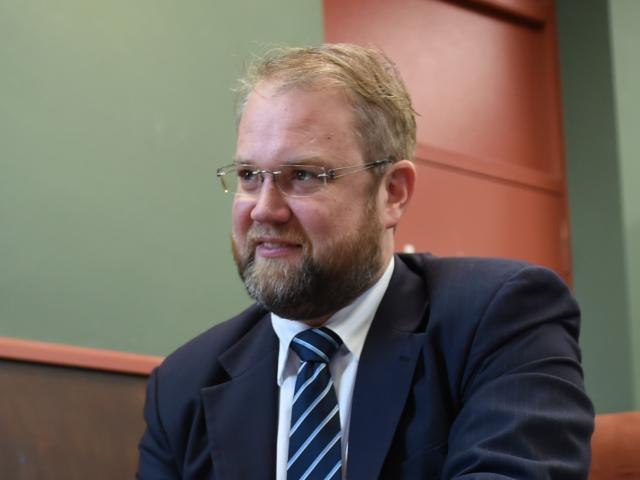
A Dunedin lawyer will be trying to find a way many more New Zealanders can benefit from ACC.
Warren Forster has received the NZ Law Foundation International Research Fellowship to develop recommendations for an ACC scheme to provide universal coverage and not discriminate based on the cause of a person’s disability.
At present ACC provides cover for disability caused by accident but not by illness or congenital disorder.
When Sir Owen Woodhouse designed the ACC scheme in the 1960s he intended it to cover any incapacity.
"This isn’t a new idea and it isn’t my idea, but it is maybe an idea whose time has come - and timing is everything," Mr Forster said.
"A good recent example is what happened in Hawke’s Bay with campylobacter where, according to ACC, whether or not someone was prosecuted or not determined whether or not you got ACC compensation.
"That doesn’t make sense: the health board had to cover the cost of it, the families of the people who got really sick had to cover the financial and social costs, and there is no sensible reason to do it like that."
The Law Foundation award, worth up to $125,000, is regarded as New Zealand’s premier legal research award, and is awarded to projects expected to make a significant contribution to the law.
The 2013 New Zealand Disability Survey estimated 1.1million New Zealanders - a quarter of the population - were disabled.
Previous research by Mr Forster found between 200,000 and 300,000 claims for ACC cover were declined annually: ACC’s own estimate is 70,000 a year.
That caused extra cost, as people mounted legal challenges to their assessment decisions. It also shifted costs, as people instead either applied for MSD assistance or paid for their health care themselves.
"I want to try and find a model which minimises the incentive to shift costs from one place to another," Mr Forster said.
"There is a whole lot of expense in determining boundaries: ACC spends hundreds of millions of dollars a year doing assessments and putting people in one camp or another. MSD has a similar cost."
A universal eligibility scheme was fairer and did not have to be more expensive for taxpayers. Expenses on other Government budgets would transfer to ACC.
"I’m not suggesting that everyone who has a disability needs to be given full economic recompense, receive attendant care, that we buy cars for everyone or that we build ramps in to everyone’s houses, but if we are going to address this as a society we need to change the way we build buildings so we don’t need to modify them for each person, we need to have information in accessible forms so that someone who is blind can interact in the labour market.
"All of these things will reduce cost and make us as a society more productive: we can either put a Band Aid on it, as we do now, or we can redesign important parts of our lives."
There is time pressure on the Government to move in this direction, as New Zealand is about to be tested by the United Nations for compliance with its Convention on the Rights of Persons With Disabilities.
"This is an opportunity for us ... to make real, substantive change," he said.
Mr Forster hoped to have a report available for public discussion within 18 months.
"This is the start of the conversation ... What we have now isn’t working, and we are just tinkering around the edges."












